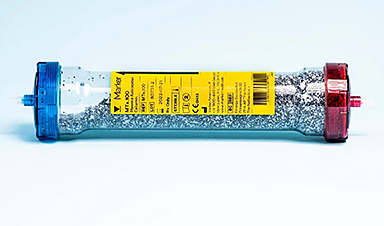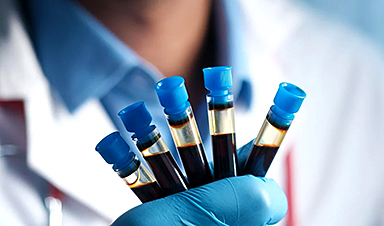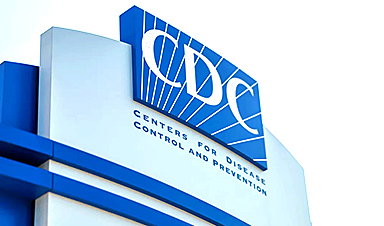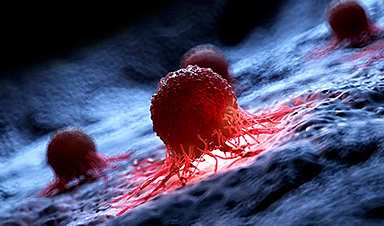A breakthrough nasal surgery has restored the sense of smell for a dozen long Covid patients.
Experts at University College London Hospitals NHS Foundation Trust successfully employed a technique typically used for correcting blocked nasal passages, known as functional septorhinoplasty (fSRP).
Researchers estimate that between 50,000 and 100,000 individuals in the UK are grappling with long Covid-related smell loss.
The study focused on patients who had experienced this impairment for over two years, with previous treatments like smell training and corticosteroids proving ineffective.
One 27-year-old participant experienced a near-complete restoration of smell, significantly improving her quality of life and expanding her dietary choices.
The fSRP procedure addresses deviations in the nasal septum, widening the nasal passageways and increasing airflow to the olfactory region at the roof of the nasal cavity.
This region is crucial for processing smell, and the increased airflow allows a greater concentration of odorants – the chemical compounds responsible for smell – to reach it.
The team believes this increased exposure to odorants is key to restoring the sense of smell for these patients.
Penelope Newman, 27, from south London, took part in the trial. Her results have been published in the journal Facial Plastic Surgery.
She said she had begun to accept she would “probably never be able to smell or taste things the way I used to” before she had the surgery.
“It seemed dire, and after around two and a half years of parosmia (impaired sense of smell), I had totally changed my lifestyle.
“For those who have experienced this, they will know how isolating it can be. The food I could cook and eat was so limited, and I couldn’t go out to restaurants as I would feel unwell.
“Getting something as drastic as surgery was a risk I was willing to take on the small chance it might help.”
After having the surgery, Ms Newman said, she had begun to enjoy food and smells the same way she used to.
“I can now cook and eat garlic and onions and people can cook for me too. I can go out to eat with my friends and family.
“My taste and smell have almost returned to normal. I’m not sure if it will ever fully return as I still have a small reduction in it, but I am so glad that I am no longer as isolated as I once was.
“I will never take my senses for granted ever again.”
The research was led by Professor Peter Andrews, senior consultant surgeon in rhinology and facial plastic surgery, and Alfonso Luca Pendolino, then senior rhinology fellow at UCLH.
It included 25 long Covid patients, with 12 of the patients undergoing fSRP, while the control group of 13 patients continued with smell training – sniffing the same scents repeatedly – for the study.
Sense of smell was measured over the duration of the study by using the Sniffin’ Sticks test, a widely-used clinical test to detect smell.
All patients who had fSRP reported an improved sense of smell compared with none of the patients in the sniff test group, where 40 per cent actually reported a worsening sense of smell.
The experts said the surgery was particularly good at increasing odour sensitivity by lowering the odour threshold – the minimal concentration of an odour a person can actually smell – which is specifically noted in long Covid patients with an impaired sense of smell.
Professor Andrews said the sense of smell “is bit like a muscle”, saying: “The more you use it, the stronger it is.”
The surgery increases the airway into the olfactory area, the roof of the nose, by about 30 per cent, so air flow also increases by about 30 per cent.
Professor Andrews added: “There’s a big group of patients who are still suffering with this problem of smell dysfunction following Covid infection three or four years ago.
“This study has shown impressive results – if we apply the principle of increasing the nasal or olfactory airway, we’re getting a reactivation of the sense of smell and then an improvement of the sense of smell.
“With long Covid anosmia you’ve got patients, fundamentally, who can’t smell or smell very poorly, so we need to somehow wake them up.
“And this operation sort of does that. It sort of wakes up the olfactory mucosa and then it builds on it through the increased nasal airway – hitting that area, more odorants hitting that area – and we’re getting this impressive recovery in the majority of the patients. All patients we operated on improved.”
Professor Andrews said persistent Covid anosmia was still a problem for an estimated 50,000 to 100,000 people.
“It’s the sort of forgotten group of people, to be honest,” he said.
“If you lose your sense of smell it has incredible consequences. It’s not until you’ve lost your sense of smell (that you realise) how it affects your taste, how it affects your daily living.”
As a follow-up, researchers are now looking at the brain changes that happen following fSRP, which could explain its long-term benefits.
News
A Grain of Brain, 523 Million Synapses, Most Complicated Neuroscience Experiment Ever Attempted
A team of over 150 scientists has achieved what once seemed impossible: a complete wiring and activity map of a tiny section of a mammalian brain. This feat, part of the MICrONS Project, rivals [...]
The Secret “Radar” Bacteria Use To Outsmart Their Enemies
A chemical radar allows bacteria to sense and eliminate predators. Investigating how microorganisms communicate deepens our understanding of the complex ecological interactions that shape our environment is an area of key focus for the [...]
Psychologists explore ethical issues associated with human-AI relationships
It's becoming increasingly commonplace for people to develop intimate, long-term relationships with artificial intelligence (AI) technologies. At their extreme, people have "married" their AI companions in non-legally binding ceremonies, and at least two people [...]
When You Lose Weight, Where Does It Actually Go?
Most health professionals lack a clear understanding of how body fat is lost, often subscribing to misconceptions like fat converting to energy or muscle. The truth is, fat is actually broken down into carbon [...]
How Everyday Plastics Quietly Turn Into DNA-Damaging Nanoparticles
The same unique structure that makes plastic so versatile also makes it susceptible to breaking down into harmful micro- and nanoscale particles. The world is saturated with trillions of microscopic and nanoscopic plastic particles, some smaller [...]
AI Outperforms Physicians in Real-World Urgent Care Decisions, Study Finds
The study, conducted at the virtual urgent care clinic Cedars-Sinai Connect in LA, compared recommendations given in about 500 visits of adult patients with relatively common symptoms – respiratory, urinary, eye, vaginal and dental. [...]
Challenging the Big Bang: A Multi-Singularity Origin for the Universe
In a study published in the journal Classical and Quantum Gravity, Dr. Richard Lieu, a physics professor at The University of Alabama in Huntsville (UAH), which is a part of The University of Alabama System, suggests that [...]
New drug restores vision by regenerating retinal nerves
Vision is one of the most crucial human senses, yet over 300 million people worldwide are at risk of vision loss due to various retinal diseases. While recent advancements in retinal disease treatments have [...]
Shingles vaccine cuts dementia risk by 20%, new study shows
A shingles shot may do more than prevent rash — it could help shield the aging brain from dementia, according to a landmark study using real-world data from the UK. A routine vaccine could [...]
AI Predicts Sudden Cardiac Arrest Days Before It Strikes
AI can now predict deadly heart arrhythmias up to two weeks in advance, potentially transforming cardiac care. Artificial intelligence could play a key role in preventing many cases of sudden cardiac death, according to [...]
NanoApps Medical is a Top 20 Feedspot Nanotech Blog
There is an ocean of Nanotechnology news published every day. Feedspot saves us a lot of time and we recommend it. We have been using it since 2018. Feedspot is a freemium online RSS [...]
This Startup Says It Can Clean Your Blood of Microplastics
This is a non-exhaustive list of places microplastics have been found: Mount Everest, the Mariana Trench, Antarctic snow, clouds, plankton, turtles, whales, cattle, birds, tap water, beer, salt, human placentas, semen, breast milk, feces, testicles, [...]
New Blood Test Detects Alzheimer’s and Tracks Its Progression With 92% Accuracy
The new test could help identify which patients are most likely to benefit from new Alzheimer’s drugs. A newly developed blood test for Alzheimer’s disease not only helps confirm the presence of the condition but also [...]
The CDC buried a measles forecast that stressed the need for vaccinations
This story was originally published on ProPublica, a nonprofit newsroom that investigates abuses of power. Sign up to receive our biggest stories as soon as they’re published. ProPublica — Leaders at the Centers for Disease Control and Prevention [...]
Light-Driven Plasmonic Microrobots for Nanoparticle Manipulation
A recent study published in Nature Communications presents a new microrobotic platform designed to improve the precision and versatility of nanoparticle manipulation using light. Led by Jin Qin and colleagues, the research addresses limitations in traditional [...]
Cancer’s “Master Switch” Blocked for Good in Landmark Study
Researchers discovered peptides that permanently block a key cancer protein once thought untreatable, using a new screening method to test their effectiveness inside cells. For the first time, scientists have identified promising drug candidates [...]





















